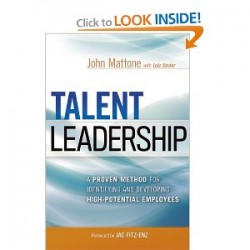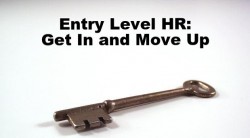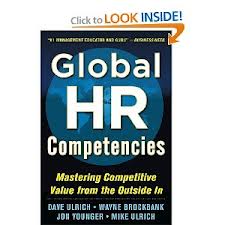The other day my buddy Laurie posted about 401k plans being for “suckers.” After reading her comments and those of some of her audience, I felt led to respond. Here’s a snippet:
Some HR professionals are horrified by the way you manage your money, but I feel your pain. You can't squeeze blood out of a turnip. So I have a challenge for HR: Want your employees to invest in retirement? Pay them more so they can take care of the basics and then invest. Until then, 401ks are for suckers…
Full article
Stating the obvious
This revolutionary idea is going to astound everyone.
You can’t invest and save for the future when you’re buried in debt.Â
It’s not just the millenials walking out of college with massive debt. The baby boomers are pushing back retirement because they have too many obligations to stop working. And unless they are total losers, they’re probably making more money than they were as entry level peons. Yet they are still in debt. Weird, huh?
Paying people more money isn’t going to solve the problem by itself.
Personal finance is *personal*
Here’s a crazy idea:Â Spend less than you make.
Yeah, but [insert excuse here].
I’ve been there. It’s hard. But it’s necessary. I haven’t lived the perfect life, but I have learned a few things via my own experiences and those I’ve observed in others (friends, family, employees, etc.).
My imperfect story
I have a great job. It wasn’t always this way. The day after I got married, I sent in my offer letter to start my first “real” job. I signed up for a whopping $9/hr data entry gig. It was torture. I hated it. And I knew that there was no way we would be able to survive and pay our bills.
So I studied, worked my tail off, and made myself more valuable to my employer. Then my wife got a job. We scrimped and saved. Looking back now I have no idea how we made it. It was very tight, and we didn’t live extravagantly. We didn’t have cable. We went without internet access. We cooked almost all of our meals. We carpooled to work. We really tried to keep things as tight as possible, because at that point we were living the paycheck-to-paycheck nightmare.
And, yet, I made sure to put money into my 401k at work.
Why? Because I took five minutes to pull up a financial calculator and run the numbers. As a 21 year old if I just put in $100 per month (which is a LOT for someone making $9/hr) from age 21 to age 60, I’d have over a million dollars in my retirement retirement fund. And that’s assuming I’m such a loser that I never make any more money than the $9/hr and that my company matches 0% of the contributions (the majority match around 4%).
But then I found another job (and took a pay cut voluntarily so I could get into HR). They didn’t match anything, so I didn’t put any money in. That’s also around the time that my wife and I were saving money like crazy for an adoption. We were determined not to go into debt, because one little misstep could lead us into a financial death spiral. At least if we were cash flowing the expenses we could bail if things didn’t go as expected.
How our employees do it
Recently I was putting together some data for a benchmarking tool, and it all related to our 401k plan, how employees utilize it, etc. I quickly noticed something. We basically match 6% if an employee puts in 7%, so there’s a big incentive to use it.
However, some of our staff have never even touched the 401k, despite the offer. For a hypothetical person making $100k (enough to cover the “basics,” I would say), that is an additional $6k that we’re ready to give them if only they would commit their own dollars to the account.
People get performance-based pay increases on a fairly regular cycle. 99% of the staff don’t touch their 401k contribution percentage at that time, even though they could put half of the increase into the account and never even notice it was gone.
This isn’t a scientific study, but I’d be willing to bet that it’s a fair approximation of the overall workforce. Some people make 401k contributions a priority, and others don’t. It’s a personal choice we all have to make for ourselves.
The only time to touch your 401k
With regard to the article that Laurie mentioned, there are times that families need to dip into the 401k for extreme emergencies. But the only time that is a truly “extreme” emergency is when you’re going to face foreclosure/bankruptcy and lose everything. That’s a personal choice, and the only comment I have here is to caution you to discern what is a true emergency (a child needs a medical procedure) from what is merely an urgent non-emergency (your car breaks down and needs $2,000 in repairs).
The thing to remember is that when you take money from your 401k, you’re losing up to 40% of it (depending on your tax bracket). The IRS charges you your tax rate plus a 10% penalty to get your hands on that money.
Ever since my children were born we’ve had a small emergency fund to help us in case a true emergency arises. When I had a car accident in 2011 and totaled my vehicle, we were able to shop around and find a suitable replacement without having to rush out and pick up a car payment. Again, I’m not the expert and don’t have all of the answers, but this is how we live and it has been a relief for us. The more of a buffer you build between you and “life,” the less chance of an emergency derailing your financial future.
Still learning
I’m not a 401k or financial expert. I can’t speak to every person’s unique situation. But I have learned a good bit about behaviors and personal finance in my lifetime. People make their choices about priorities and then need to live with them. Decide to put 0% into your 401k so you can get a new car with a $450/month payment (the US average)? That’s your call, but don’t look at me when you decide it’s time to retire.
In case you’re wondering, for a 40 year old, that 450/month payment would be worth about $450k by age 60. Hope you enjoy the car!
The workplace application
When I’m throwing out these examples or telling my own story, you need to see these not as disconnected, random events. These are very real examples, and many of your employees are living out financial train wrecks. 40% of the employees in your organization (statistically) are living paycheck to paycheck. They can’t afford to take time off, relax, de-stress, etc.
Stop and think for a second. If you were getting calls from creditors, facing financial issues, etc. at home, how productive do you think you’d be at work?
I’d love to hear some thoughts in the comments below. Am I the only one who thinks that employees need to get their personal finance affairs in order? Any comment that doesn’t contribute to the discussion in some way will not be published. Attacks and foul language are not allowed here.Â
 What I liked
What I liked So what are HR job qualifications and how can you get them?
So what are HR job qualifications and how can you get them?
